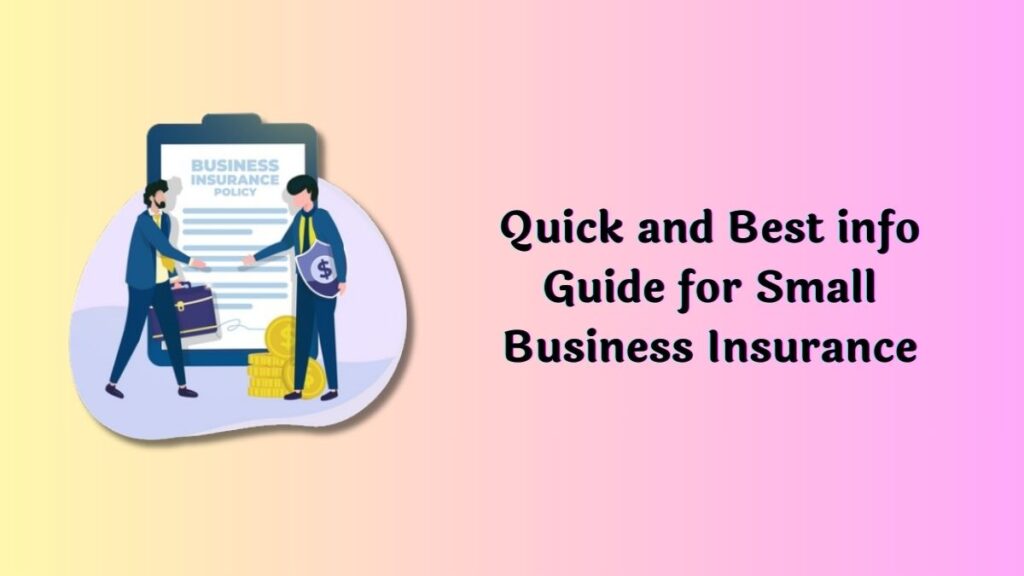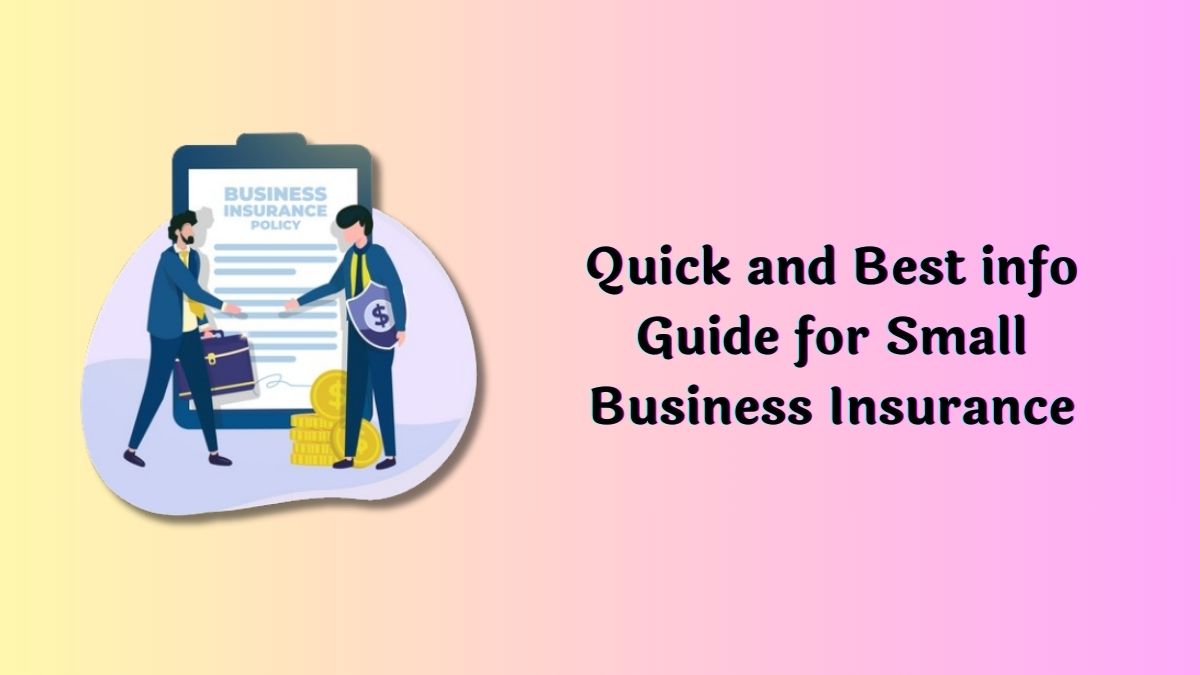Small businesses face a myriad of risks that can threaten their operations and financial stability. From property damage to legal liabilities, unforeseen events can disrupt business operations and incur significant expenses. Small business insurance offers protection and peace of mind by safeguarding against these risks. In this comprehensive guide, we’ll delve into the intricacies of small business insurance, covering everything from its importance and types to how to choose the right coverage for your business.

Small businesses are the backbone of the American economy, driving innovation, creating jobs, and fueling growth. However, along with the opportunities come risks. From property damage caused by natural disasters to lawsuits stemming from accidents, small businesses are exposed to various threats that can jeopardize their survival. Small business insurance acts as a safety net, providing financial protection against these risks and allowing entrepreneurs to focus on running their businesses without constant worry.
Understanding Small Business Insurance
What is Small Business Insurance?
Small business insurance, also known as commercial insurance, is a type of coverage designed to protect small businesses from potential losses and liabilities. It typically combines various types of insurance policies tailored to meet the specific needs of a small business, providing comprehensive coverage against a wide range of risks.
Importance of Small Business Insurance
Small business insurance is essential for several reasons:
- Risk Management: It helps businesses mitigate risks associated with property damage, liability claims, and other unforeseen events.
- Legal Compliance: In many states, certain types of insurance, such as workers’ compensation insurance, are mandatory for businesses with employees.
- Financial Protection: Small business insurance provides financial support to cover the costs of lawsuits, property damage repairs, medical expenses, and other liabilities.
- Business Continuity: In the event of a disaster or unexpected event, insurance can help businesses recover quickly and resume operations without significant financial setbacks.
Types of Small Business Insurance
There are several types of insurance coverage options available for small businesses, each serving a specific purpose. Some of the most common types include:
General Liability Insurance
General liability insurance protects businesses against claims of bodily injury, property damage, and advertising injury. It covers legal fees, medical expenses, and settlements resulting from lawsuits filed by third parties.
Property Insurance
Property insurance provides coverage for physical assets such as buildings, equipment, inventory, and furniture. It protects against losses caused by fire, theft, vandalism, and other perils.
Business Interruption Insurance
Business interruption insurance compensates businesses for lost income and operating expenses in the event of a covered disruption, such as a fire or natural disaster. It helps businesses stay afloat while they rebuild and recover from the incident.
Workers’ Compensation Insurance
Workers’ compensation insurance is mandatory in most states for businesses with employees. It provides medical benefits and wage replacement to employees who suffer work-related injuries or illnesses.
Professional Liability Insurance
Professional liability insurance, also known as errors and omissions insurance, protects businesses against claims of negligence, errors, or omissions in the services they provide. It is essential for professionals such as doctors, lawyers, consultants, and architects.
Commercial Auto Insurance
Commercial auto insurance covers vehicles used for business purposes against accidents, theft, vandalism, and other damages. It provides liability protection for bodily injury and property damage caused by company-owned vehicles.
How to Choose the Right Small Business Insurance
Choosing the right small business insurance coverage requires careful consideration of several factors:
Assess Your Risks
Identify the specific risks faced by your business, such as property damage, liability claims, or employee injuries. Assess the potential impact of these risks on your operations and finances.
Research Providers
Research insurance providers that specialize in small business insurance. Compare their offerings, reputation, financial stability, and customer reviews to find a reliable and trustworthy provider.
Understand Policy Coverage
Read and understand the terms and conditions of each insurance policy. Pay attention to coverage limits, deductibles, exclusions, and additional endorsements or riders that may be necessary for your business.
Consider Cost vs. Coverage
Balance the cost of insurance premiums with the level of coverage provided. Consider factors such as deductibles, co-payments, and out-of-pocket expenses when determining the affordability of insurance policies.
Review and Update Regularly
Regularly review your insurance coverage to ensure it remains adequate and up-to-date. As your business grows or changes, update your insurance policies accordingly to avoid gaps in coverage.
Must Read:
- Quick info about Guardian Life Insurance? Best Way’s to Know Everything in 2024
- Where to Buy Affordable Bike Insurance? Best Way’s to Protecting Your Ride Without Breaking the Bank in 2024
FAQs about Small Business Insurance
Q1. What Does Small Business Insurance Cover?
Q2. How Much Does Small Business Insurance Cost?
Q3. Do I Need Small Business Insurance if I’m Self-Employed?
Q4. Can I Bundle Different Types of Small Business Insurance?
Conclusion
Small business insurance is a crucial investment for entrepreneurs looking to protect their businesses from unforeseen risks and liabilities. By understanding the importance of insurance, exploring the different types of coverage available, and selecting the right policies for their needs, small business owners can safeguard their assets, finances, and reputation against potential threats.
Remember to regularly review and update your insurance coverage to ensure continued protection as your business grows and evolves. With the right insurance coverage in place, small businesses can focus on what they do best—innovating, serving customers, and driving growth in the American economy.
